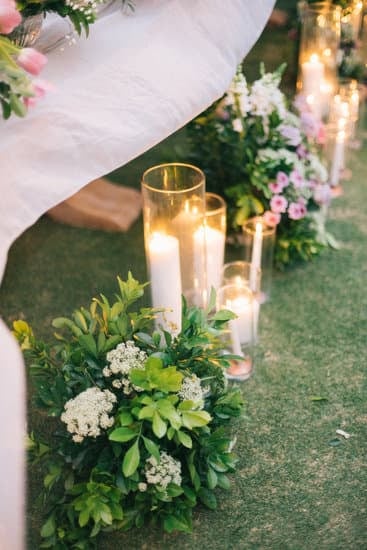How much wedding photography coverage do I need? When it comes to capturing the special moments of your big day, understanding the importance of wedding photography coverage is crucial. From the ceremony to the reception and everything in between, having the right amount of coverage ensures that all the significant moments are beautifully documented for you to cherish for years to come.
As you plan your wedding day, there are several factors to consider when determining how much coverage you need. Factors such as the start time of your ceremony, the length of your reception, and any potential special events or traditions that you want captured all play a role in deciding the right amount of coverage for your specific needs.
When it comes to choosing the right photography package, there are various options offered by wedding photographers. These packages typically include different amounts of coverage and additional services, such as engagement sessions or albums. Understanding these options and what they entail will help you make an informed decision about how much coverage is right for you.
In this article, we will explore how to define your wedding day schedule, assess your photography priorities, consider budget constraints, and effectively communicate your needs to your photographer. By understanding these key elements, you will be equipped with the knowledge needed to ensure that you choose the perfect amount of wedding photography coverage for your special day.
Defining Your Wedding Day Schedule
When considering the amount of wedding photography coverage you need, one of the most important factors to take into account is your wedding day schedule. Your ceremony start time, reception length, and any potential special events will all play a crucial role in determining the right amount of coverage for your big day.
The ceremony start time is a key aspect to consider when planning your photography coverage. If you are having an early afternoon ceremony, you may want coverage to begin a few hours before the ceremony itself to capture special moments as you and your partner prepare for the day.
On the other hand, if you are having an evening ceremony, you may not need as much lead-in coverage. It’s also important to factor in travel time if your ceremony and reception are at different locations.
The length of your reception is another important consideration. A shorter reception may require less coverage time, while a longer reception with multiple events (like speeches or performances) may necessitate more extensive coverage. For example, if you plan on having a grand exit at the end of your reception, it’s essential that you have enough coverage to capture this memorable moment.
Additionally, potential special events like a first look session or cultural ceremonies should be taken into account when determining how much photography coverage you need. These events often require dedicated photography time and should be factored into your overall coverage plan.
| Factors | Considerations |
|---|---|
| Ceremony Start Time | Early or late ceremony requires different lead-in coverage |
| Reception Length | Shorter or longer receptions require varying levels of coverage |
| Potential Special Events | First look sessions or cultural ceremonies may require dedicated photography time |
Coverage Options
When it comes to wedding photography, there are various coverage options offered by photographers to capture your special day. Each package typically includes different elements, so it’s important to explore these options and consider what will work best for your wedding day.
Full Day Coverage
Full day coverage is a popular option for many couples, as it allows the photographer to capture every moment from the early morning preparations to the grand exit at the end of the night. This type of coverage ensures that all aspects of your wedding day are documented, providing a comprehensive collection of photos that truly tell the story of your special day.
Partial Day Coverage
For couples who have a shorter wedding day schedule or specific parts of the day that are most important to them, partial day coverage may be a more suitable option. This could include capturing just the ceremony and formal portraits, or starting with the pre-ceremony preparations and ending after dinner at the reception. It’s important to consider what parts of the day you want captured and choose a package that aligns with your priorities.
A La Carte Options
Some photographers offer a la carte options that allow you to customize your coverage based on specific events or time frames. This can be beneficial for couples who have unique scheduling needs or who want additional coverage for certain moments, such as a first look or post-ceremony cocktail hour. By discussing these options with your photographer, you can create a custom package that fits your specific needs.
When considering which coverage option is right for you, think about what moments are most important to capture and how much time will be needed to do so effectively. Consider discussing these factors with potential photographers to determine which package will provide the perfect amount of coverage for your wedding day.
Assessing Your Photography Priorities
When it comes to deciding how much wedding photography coverage you need, one of the most important factors to consider is determining what moments and events are most important to you and your partner to be captured. Every couple has different priorities when it comes to their wedding day, so taking the time to assess your photography priorities is essential in making sure that you get the coverage you want.
Start by making a list of the key moments and events that you definitely want captured on your wedding day. This may include the getting ready process, the first look, the ceremony, family portraits, speeches at the reception, and of course, those candid moments throughout the day. Once you have a clear idea of what is most important to you, it will be easier to communicate these priorities with your photographer.
It’s also important to think about any specific details or elements of your wedding that are unique and meaningful to you as a couple. Whether it’s a special heirloom, a particular location, or cultural traditions, make sure to let your photographer know so they can make capturing these aspects a priority in their coverage.
In addition to identifying what moments and events are most important to you, consider discussing with your partner as well. They may have different priorities or specific requests when it comes to photography coverage. Collaboration in assessing your photography priorities will ensure that both of your wishes are taken into account.
| Photography Priorities | Description |
|---|---|
| Key Moments and Events | Determining which moments are must-haves for capturing. |
| Unique Details | Identifying special details or elements unique to the couple’s wedding. |
| Partner’s Input | Taking into account the specific requests and priorities of both partners. |
Budget Considerations
When planning your wedding, it’s important to consider how much wedding photography coverage you need while also staying within your budget. Here are some tips for balancing the coverage you want with the budget you have:
1. Prioritize Your Must-Have Shots: Before finalizing your photography package, make a list of the must-have shots you want captured on your special day. This could include the first look, exchanging vows, cutting the cake, and the first dance. By prioritizing these shots, you can ensure that your photographer focuses on capturing the moments that mean the most to you.
2. Consider Coverage Options: Many photographers offer a variety of packages with different levels of coverage. Some may include only a few hours of coverage, while others offer full-day coverage from pre-ceremony preparations to the end of the reception. Take some time to review the available options and consider how much time is truly necessary to capture all your important moments.
3. Be Open to Flexibility: If you find that a full-day photography package doesn’t fit within your budget, consider speaking with your photographer about customizing a package that meets both your needs and budget. They may be able to offer add-ons or adjustments to ensure that you have coverage for key moments without breaking the bank.
By carefully considering these factors and communicating openly with your photographer, you can strike a balance between having adequate wedding photography coverage and staying within your budget constraints. Remember that these photos will be cherished for years to come, so it’s worth investing in capturing those special memories.
Discussing With Your Photographer
When it comes to discussing your coverage needs and expectations with your wedding photographer, communication is key. Here are some tips for effectively communicating what you want with your photographer:
1. Make a list of priority shots: Before meeting with your photographer, take some time to discuss with your partner what moments and events are most important to the both of you. This could include getting ready shots, the first look, the ceremony, formal portraits, special dances, and candid moments throughout the day.
2. Be open about your schedule: Provide your photographer with a detailed timeline of your wedding day, including the start time of the ceremony, the length of the reception, any special events or traditions that will be taking place, and any specific shots that need to be captured during certain parts of the day.
3. Ask questions: Don’t be afraid to ask your photographer about their different package options and what they typically include. Discussing with them how much coverage you need will help them recommend a package that suits your needs.
Communicating openly and honestly with your wedding photographer about how much coverage you need will ensure that you are both on the same page when it comes to capturing your special day. By following these tips, you can work together to create a photography plan that meets all of your expectations.
Sample Timelines
Planning out the timeline for your wedding day is essential to understanding how much photography coverage you will need. Depending on the events and schedule of your big day, the amount of coverage required could vary. Here are some sample timelines to help you determine the right amount of coverage based on different wedding day schedules and timelines.
Morning Ceremony With Evening Reception
If you are having a morning ceremony followed by an evening reception, consider starting with coverage 2-3 hours before the ceremony. This would include getting ready shots, bridal party portraits, and family photos. For a morning ceremony followed by an evening reception, you may want coverage during cocktail hour as well as into the reception to capture speeches, cake cutting, and first dances.
Afternoon Ceremony With Late-Night Reception
For couples having an afternoon ceremony with a late-night reception, starting with coverage 2-3 hours before the ceremony is still ideal for getting ready shots and portraits. Coverage into the evening should include the entire reception, including special events like toasts and bouquet/garter tosses.
Full-Day Coverage
Some couples prefer full-day coverage to ensure that every moment of their wedding day is captured. Full-day coverage typically includes 8-10 hours, or more, depending on your photographer’s offerings. This allows for documentation from start to finish – capturing all events such as hair and makeup preparations through the end of the reception festivities.
By considering these sample timelines based on different wedding day schedules and timelines, you can better determine how much photography coverage you need for your specific wedding. Remember that every couple’s needs are unique, so discussing your preferences with your photographer is key in ensuring that all important moments are captured flawlessly so that they can be cherished for years to come.
Making the Right Choice
When it comes to selecting the right amount of coverage for your wedding day, there are a few final considerations and tips that can help ensure you make the right choice. One of the most important factors to consider is the schedule of your wedding day.
Factors such as the ceremony start time, reception length, and any special events or activities you have planned will all play a role in determining how much coverage you need. For example, if you are having a longer reception or including special events such as a cocktail hour or performance, you may need additional coverage to capture these moments.
Another important consideration is your photography priorities. Sit down with your partner and discuss what moments and events are most important to both of you to be captured. Whether it’s the first look, exchange of vows, or special dances at the reception, clearly identifying your priorities will help you communicate your needs to your photographer.
Budget considerations also play a crucial role in determining how much wedding photography coverage you need. While it’s important to stay within budget, it’s also essential to prioritize capturing the moments that matter most to you.
Discussing with your photographer about your budget and photography priorities can help them tailor a package that meets both your needs and budget constraints. By carefully considering these factors and effectively communicating with your photographer, you can make sure that you select the perfect amount of coverage for your wedding day.
Conclusion
In conclusion, determining how much wedding photography coverage you need is a crucial decision that can greatly impact the memories captured on your special day. It’s important to consider factors such as your wedding day schedule, photography priorities, and budget when making this decision. By understanding these key elements, you can work with your photographer to ensure that the perfect moments are captured without breaking the bank.
When defining your wedding day schedule, take into account the start time of your ceremony, the length of your reception, and any potential special events that you want documented. This will help you determine how much coverage is necessary to capture all of the important moments. Additionally, discussing your photography priorities with your partner and assessing which events are most important to you will also guide you in deciding how much coverage you need.
In addition to considering these logistical factors, it’s also essential to communicate openly with your photographer about your coverage needs and budget considerations. Be sure to explore different package options offered by photographers and discuss sample timelines to get a clear understanding of what will work best for your wedding day.
By taking all of these factors into consideration and communicating effectively with your photographer, you can ensure that you have just the right amount of coverage for your special day.
Frequently Asked Questions
Is 5000 Too Much for Wedding Photographer?
The cost of a wedding photographer can vary based on their experience, location, and services offered. While $5000 may seem like a lot, it could be justifiable for an experienced photographer with a good reputation and comprehensive package.
Is 8 Hours Enough for Wedding Photographer?
Eight hours of coverage can be sufficient for many weddings, especially if the ceremony and reception are held in the same venue. However, couples with multiple locations or intricate schedules may require additional coverage to ensure all important moments are captured.
Is 2 Hours Long Enough for Wedding Photos?
Two hours might be enough for some couples who only want photos of the ceremony and some portraits afterwards. However, it may not be enough time for those who also want pre-ceremony shots or extended photo sessions at different locations.

I have been involved in marriages for over 20 years helping couples and singles understand more about them.





